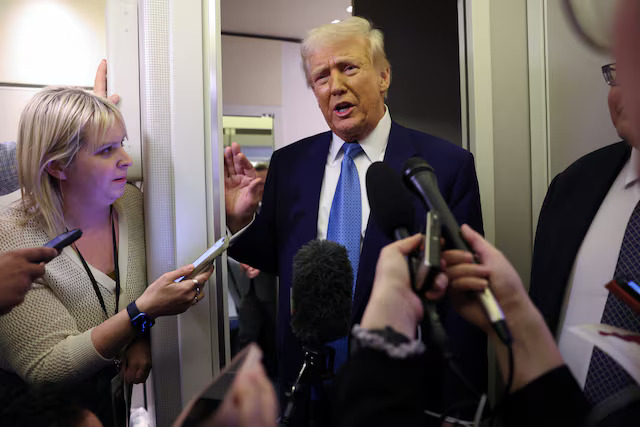U.S. President Donald Trump has signed a series of executive orders aimed at tightening immigration policies and reducing federal government oversight. One of the key measures focuses on preventing taxpayer dollars from supporting undocumented migrants, while another seeks to roll back regulations the administration views as unnecessary. These actions come as part of Trump’s broader efforts to reshape government spending and enforcement policies.
What Do These Executive Orders Mean for Immigration?
Under the new immigration order, all federal agencies are required to review and halt funding for programs that provide assistance to undocumented migrants. Additionally, the order prohibits the use of federal funds in state and local “sanctuary” jurisdictions, which are cities or regions that limit their cooperation with federal immigration enforcement. The White House has emphasized that these measures are designed to ensure taxpayer dollars are not used to support individuals who are in the country illegally.
However, this decision raises concerns about how cities with sanctuary policies will handle migrant populations without federal support. Will this move put additional strain on local resources? How will affected communities adapt to the funding cuts? Many advocacy groups argue that sanctuary cities play a vital role in protecting vulnerable individuals, while critics contend that they encourage illegal immigration.
What is the Impact of the Regulatory Overhaul?
In another major move, Trump has ordered a full-scale review of federal regulations, directing agency heads to work with Elon Musk’s Department of Government Efficiency to identify and eliminate policies that do not align with the administration’s goals. The aim is to streamline government operations and reduce what Trump has frequently referred to as “bureaucratic overreach.”
This regulatory shake-up has sparked debate over whether eliminating certain policies could weaken protections in areas such as environmental regulations, labor laws, and consumer rights. What kind of regulations will be targeted? How will this impact businesses, workers, and everyday citizens? While supporters argue that deregulation will boost economic growth and reduce red tape, opponents warn of potential risks to public safety and environmental standards.
Which Agencies Will Be Affected?
As part of his broader plan to downsize government, Trump has also announced the elimination of several advisory committees and agencies. Among those set to be disbanded are:
- The United States Institute for Peace – an organization focused on promoting conflict resolution globally.
- The Inter-American Foundation – a body that funds community development projects in Latin America and the Caribbean.
- The U.S. African Development Foundation – an agency that supports economic development initiatives across Africa.
The closure of these agencies raises critical questions about the future of U.S. engagement in international development. How will this affect global stability? Will other nations step in to fill the gap left by U.S. withdrawal from these programs? Critics argue that cutting these organizations could weaken diplomatic ties and reduce America’s influence in international affairs.
Trump’s latest executive orders align with his long-standing campaign promises to reduce government spending and enforce stricter immigration policies. However, these actions are expected to face legal challenges from advocacy groups, local governments, and possibly even members of Congress.
Many legal experts anticipate lawsuits arguing that some of the regulatory cuts could violate existing federal laws. Meanwhile, immigrant rights organizations are likely to challenge the funding cuts to sanctuary cities, calling them unconstitutional. Will the courts block some of these orders? How will Congress respond to these sweeping changes?
The president signed these executive orders aboard Air Force One while returning from Florida to Washington, demonstrating his administration’s commitment to reshaping federal policies. As these changes take effect, the nation will watch closely to see how they impact immigration, government operations, and international relations.

